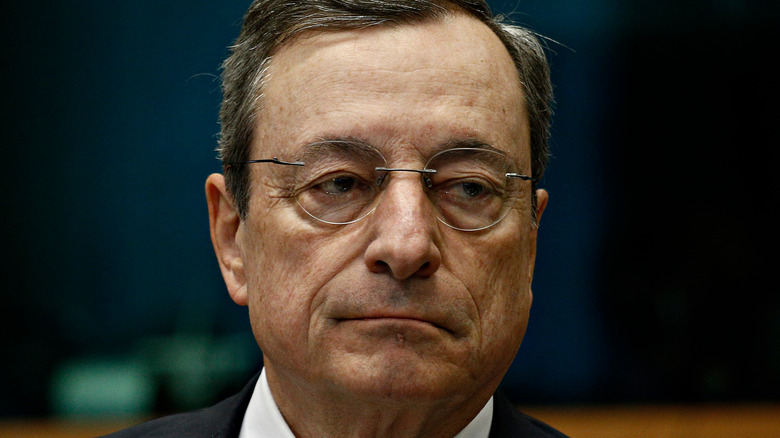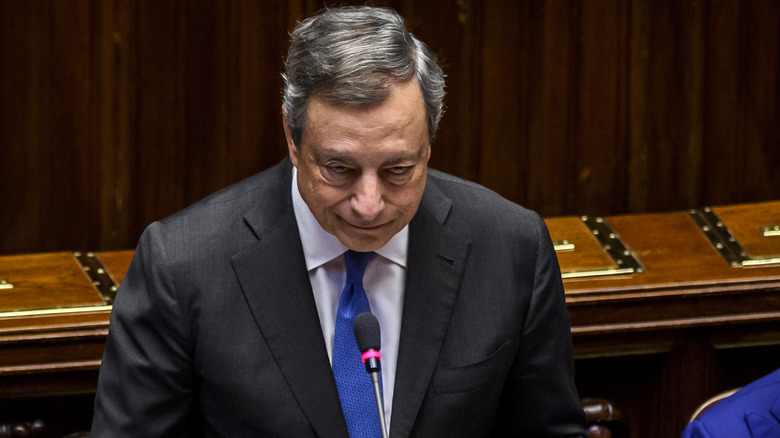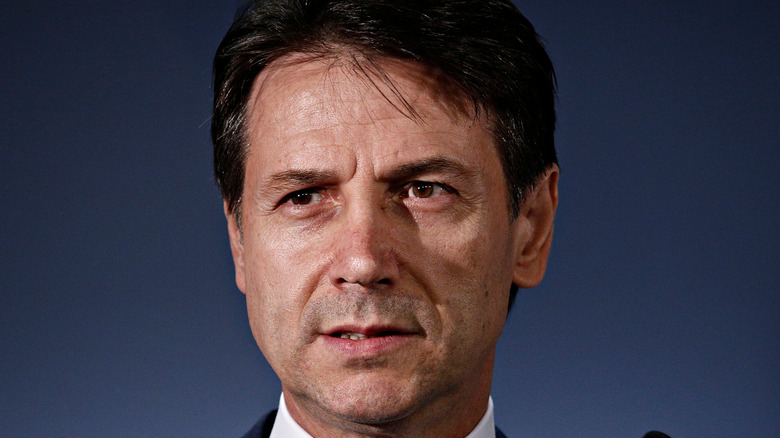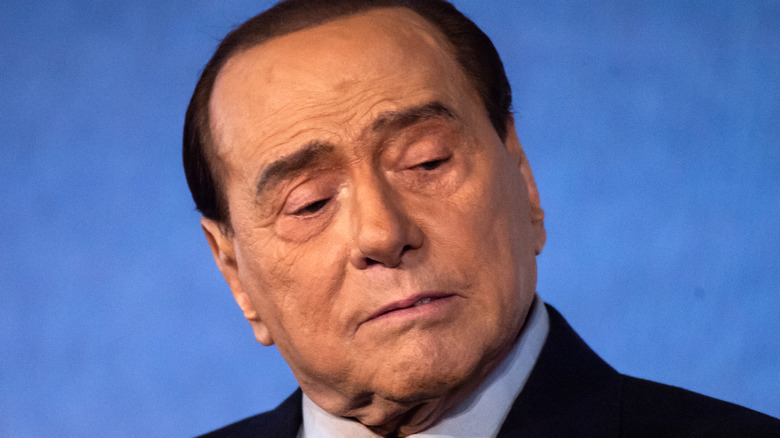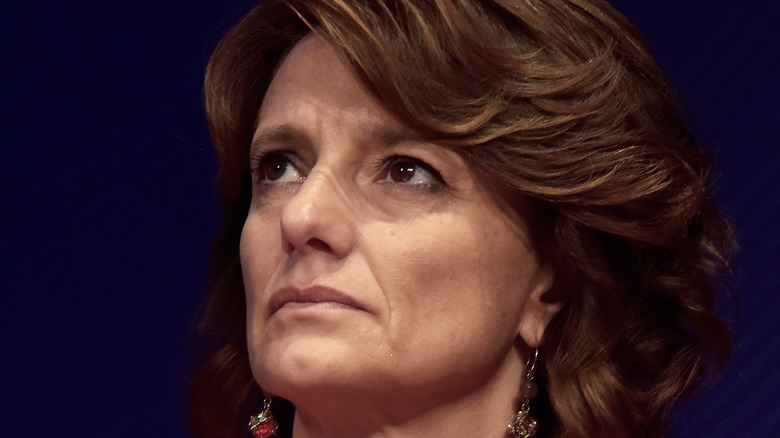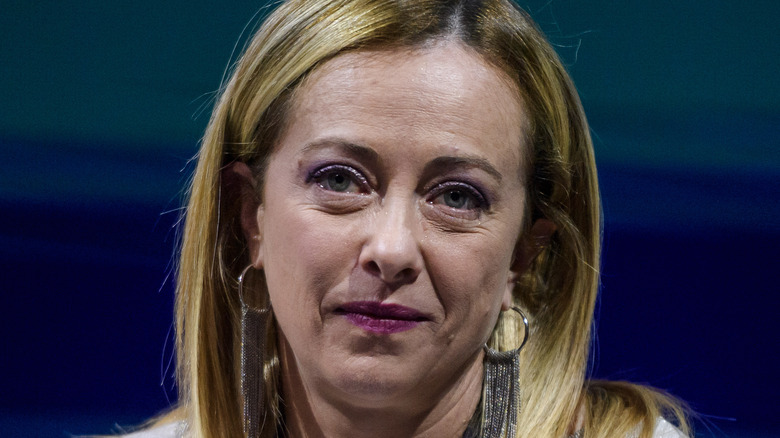Italian Prime Minister Mario Draghi's Resignation Explained
Italian Prime Minister Mario Draghi resigned on July 21, 2022, according to CNBC. Though Draghi received a nod of confidence from the Italian senate one week prior, several members of Draghi's own national unity coalition government snubbed the former central banker, based on reporting from the Associated Press. With the boycott, the Italian parliamentary-style government effectively collapsed, and Draghi had no choice but to step down. After Draghi informed Italian President Sergio Mattarella of his decision, Mattarella asked Draghi to remain in position until snap elections take place in the fall. As of this report, those elections are expected to take place on September 25, 2022, per Politico.
Draghi rose to the position of prime minister in the midst of an economic downturn in Italy, caused in part by the COVID-19 pandemic. Other issues faced by Draghi while in office were high inflation and the soaring cost of energy. Draghi came to power on a tenuous promise to unite right- and left-leaning interests in Italian politics. Among other factors, factions of Draghi's own coalition refused to participate in his vote of confidence due to the Italian response to the crisis in Ukraine.
Draghi came to Italian politics from the European Central Bank
Prior to his brief tenure as Italian prime minister, Mario Draghi was head of the European Central Bank. While there, Draghi effectively managed the eurozone debt crisis. Draghi supporters hoped he could reproduce those positive outcomes for the Italian economy as prime minister. Early on, Draghi had some success in doing so, as Italian financial markets responded favorably when Draghi first came to office. As prime minister, Draghi also helped broker a 200 billion euro COVID-19 bailout (205 billion dollars) from the EU, as CNBC notes.
In addition to economic concerns facing Italy, a number of domestic issues also proved Draghi's undoing. Those domestic problems were a priority in particular for the populist Five-Star Movement. At one point, the Five-Star Movement belonged to Draghi's coalition. In the end, though, the Five-Star Movement was among three other factions that refused to appear for Draghi's vote of confidence, as Politico goes on to report.
Draghi failed to satisfy populists
Priorities for the historically left-leaning Five-Star Movement in Italy included a basic income and the institution of a minimum wage. Further objections from Five-Star members came about when that agenda was ignored by Mario Draghi once he was in office, according to the Los Angeles Times. Five-Star members also disagreed with Draghi's handling of the persistent garbage service issues plaguing Rome (via Euro News). Speaking with France 24, Five-Star Movement leader Giuseppe Conte (pictured above) said his party's decision to abstain from Draghi's vote of confidence was directly related to how the Italian prime minister handled such social issues, outlined for Draghi in a nine-point plan (via The Guardian).
Conte also said (via France 24) that when the Italian snap election is set to take place in September, "many families will face the terrible choice of paying their electricity bill or buying food," referring to rising energy costs in the country which Draghi did not do enough to address, in Conte's view. Despite his party's decision to boycott Draghi's vote of confidence, Conte signaled his willingness to negotiate with the leader, according to France 24. Conte said, "We are absolutely willing to dialogue ... we are not willing to write a blank check." Also part of the Draghi vote was a 26 billion euro aid package which Conte's party deemed inadequate.
Draghi opposition also came from the center-right
The political problems plaguing Mario Draghi came not just from the left-leaning members of his coalition. Both the right-center Forza Italia and League parties once belonged to Draghi's coalition but also chose to boycott Draghi's vote of confidence in the Italian senate. With the loss of Five-Star Movement as well as Forza Italia and League, Draghi's mandate to lead crumbled, directly contributing to Draghi's decision to step down, based on reporting from the Associated Press.
As widely reported, Draghi's abandonment from the right wing of his coalition was based in part on Draghi's support for Ukraine after Russia invaded the country earlier in the year. Former Italian Prime Minister Silvio Berlusconi (pictured above) is a high-profile member of the Forza Italia with close ties to Russian President Vladimir Putin. League party leader Matteo Salvini also opposed Italian support of Ukraine in the conflict, as did Giuseppe Conte from the Five-Star Movement. Because of this, Draghi's departure was called a gift to Putin by one Italian lawmaker, per the Los Angeles Times.
Draghi maintains public support
Despite the dissolution of Mario Draghi's coalition government, the politician was encouraged to remain in office by a broad range of Italian political leaders and members of the public. On the news of Draghi's resignation, Rome newspaper La Repubblica printed the headline "Italy Betrayed," according to the Los Angeles Times. Prior to Draghi's announcement, Italian mayors drafted an open letter that requested Draghi stay despite the results of the vote of confidence. In addition to Italian politicians, Draghi also received support from a number of Italian business and labor leaders, according to CNBC. Large swaths of the Italian population also signed an online petition asking Draghi to reconsider his decision to quit.
Draghi's move came just as the European Central Bank decided to raise interest rates as many central banks have done in response to inflation. Also influenced by Draghi's departure, bond yields rose while Italian financial markets dipped, per Politico.
News of Draghi's resignation also drew a response from Elena Bonetti, the Italian Minister for Families (pictured above). She described how Draghi was treated in the vote of confidence as "unexpected and unjustified." The center-right, in particular, "allowed populism and nationalism to triumph over the interests of the Italian people," Bonetti said (via Politico).
Draghi's departure leaves a void in Italian politics
With Mario Draghi's resignation, Italian politics are left in disarray, with repercussions likely not just in Europe but all over the world. When early elections are held in the fall, many observers expect the far-right party The Brothers of Italy, which is closely aligned with both Forza Italia and the League led by Silvio Berlusconi and Matteo Salvini, to prevail. The center-left Democratic Party also polls well though, according to the Associated Press.
Should The Brothers of Italy come to power, Giorgia Meloni (pictured above) would likely become Italian prime minister, the first woman to ever hold the office. On Draghi's decision to step down, Meloni said, "The will of the people is expressed in one way: by voting," referring to the upcoming special election in the fall of 2022. "Let's give hope and strength back to Italy," she said (via the Associated Press).
